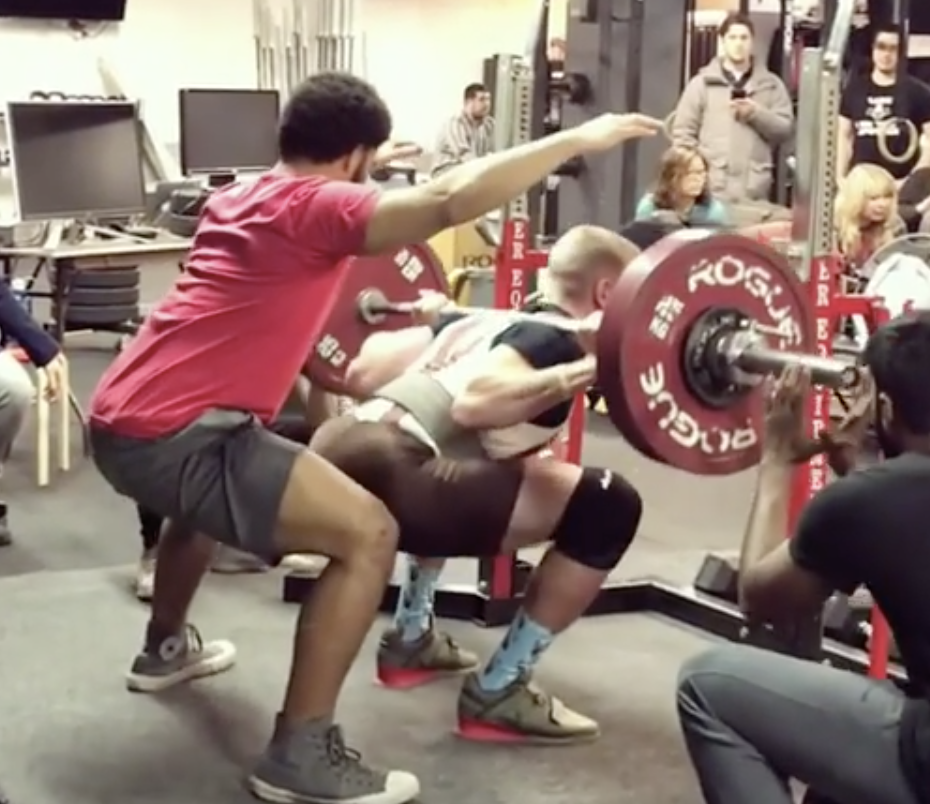In powerlifting, weightlifting, and recreational lifting, knee sleeves can be a great supportive training tool for those who want additional protection around their knees. Sleeves come in multiple shapes and forms and the rationale for wearing a pair will depend on a lifters needs, sport, and wants.
For most, knee sleeves are used as an additional layer of protection for the knee joint. Will they protect the joint fully? Not entirely. But sleeves promote joint warmth, offer a varied level of support, and can even help play a role in a lifter’s mental confidence, which could result in some protection. A question that’s frequently asked by newer lifters: Do knee sleeves increase the squat?
In short, yes and no. If you want a longer answer to the question, then read on!

3 Reasons Why Knee Sleeves Can Increase the Squat
There are multiple reasons why a knee could increase a lifter’s squat, but we’ll discuss and elaborate on the biggest three (in our opinion) below. Before going any further it’s important to understand what we mean when we write “increase the squat”. An increase in the squat could mean physical poundage, or even an increase in form.
The poundage knee sleeves will increase in the squat will be minimal and we’ll dive into those specifics below. An increase in form won’t come from knee sleeves themselves, but from an athlete’s perception and mentality, especially if sleeves support one’s level of comfort. For example, knee sleeves helped my form post knee surgery because I felt confident, which indirectly increased my squat.
[Investing in knee sleeves for a specific purpose? Check out our best reviewed knee sleeve guide before buying!]
1. Knee Sleeve Construction
The first reason why knee sleeves could increase the squat is their physical construction. Like mentioned earlier, not all knee sleeves are created equal, so their construction could play into their ability to increase the squat. In terms of physical construction traits the material a knee sleeve is made out of and how the sleeve is sewn together will play heaviest for this aspect.
- Material: Knee sleeves with 7mm neoprene will be a little thicker than your standard nylon, 3mm, or 5mm knee sleeve. If a sleeve is made to be thicker, then there may be some form of additional poundage added due to the added material providing rebound during knee flexion.
- Sewn Panels: The way a sleeve is sewn together can also influence its ability to increase the squat. For example, four-panel designed knee sleeves will often be a bit less supportive compared to their two-panel counterparts due to them not being as tight at the bottom of the squat.
2. Knee Sleeve Tightness
This aspect is probably the most influential when it comes to potentially increasing the squat, but the tightness and its level of influence will also be a heavily reflection of the sleeve’s construction, thus why it’s listed as number two.
[Need help finding your perfect knee sleeve? Check out our sleeve guide!]
Let’s say you have a thicker 7mm neoprene knee sleeve like the SBD model and you select a size down than what you normally wear. Doing this may result in a little extra poundage in the squat simply due to the extra “block-like” feeling these sleeves can create at the bottom of the squat. If you’ve ever worn knee wraps when squatting before, then you most likely know the feeling I’m referencing.
For those who haven’t worn knee wraps, imagine there’s a block that stops the knee joint from hitting a certain point of flexion in the squat. This block then helps you with a slight rebound out of the hole and also helps you predict the level of depth achieved before initiating the stand up.
Back to the rationale behind the increase in the squat. For many athletes, their sticking point is slightly above parallel, so having this slight block to provide an extra boost of rebound at the bottom can create a bit more speed out of the hole, thus resulting in extra poundage added to the squat due to handling sticking points better.
3. Confidence and Mental Cuing
The final rationale behind knee sleeves potentially increasing the squat is the most subjective. Sometimes a knee sleeve can provide a lifter with extra mental confidence or mental cues to help their mechanics. This concept is similar to wearing a belt for additional mental [and form] support when attempting 1-RM deadlifts and squats.
While we can’t provide a definitive amount here, an increase in confidence will often translate to an increase in the squat itself. This increase could come at higher weight, or even higher rep sets. By increasing one’s comfort under the bar, the weight on bar could increase as well.
Closing Remarks
Let’s call it what it is, but a knee sleeve by itself won’t increase the squat. There are multiple factors and aspects that need to align for this piece of supportive equipment to provide any physical increase. At the end of the day, more than likely your knee sleeves won’t increase your squat by themselves, and if they do, it will be by a marginal amount.
Yet, if you want extra support, which can create additional confidence, then knee sleeves could very well increase the squat. Also, sizing down with thicker sleeves could add to the poundage a sleeve can increase squats by.